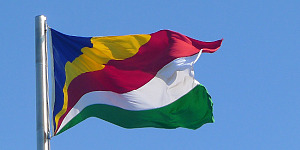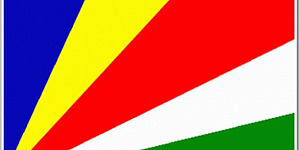The Central Bank of Seychelles (CBS) cut its monetary policy rate (MPR) by 100 basis points to 4.00 percent, saying this is the first phase of its response to the challenge from the spread of the coronavirus, which is expected to slash this year's earnings from tourism by 70 percent and trigger a double-digit drop in economic growth.
It is the second rate cut by CBS since it introduced the policy rate in January 2019 and set it at 5.50 percent. In September last year CBS cut the rate by 50 basis points.
In addition to the cut in MPR, the bank's standing deposit facility (SDF) will be cut to 10.0 percent and the standing credit facility (SCF) to 7.0 percent. The minimum reserve requirement (MRR) will remain unchanged at 13 percent.
"The CBS remains vigilant and stands ready to adjust its policies as needed to promote price stability, the bank said in a statement following a board meeting on March 23.
The Republic of Seychelles, which comprises 115 islands in the Indian Ocean, relies heavily on tourism, which is being devastated by the closure of borders in most countries.
As of the second quarter, CBS said limited inflows are expected from its services sector, with early estimates showing a fall in tourism earnings in 2020 of 70 percent in euro terms from 2019.
"This is likely to place severe pressure on the exchange rate and requires a significant decline in national consumption if the economy is to sustain a stable exchange rate," CBS said, adding it is unclear whether the fisheries industry or other export-oriented sectors can compensate for the loss of earnings in tourism.
"The main aim of the reduction in MPR is to support a decline in interest rates as a means of alleviating future stress on borrowers," CBS said, adding the loss of tourism earnings will lead to "high levels of uncertainty in all sectors of the economy."
Against the euro, the Seychellois rupee has been appreciating since March 2018 and today it jumped almost 10 percent to 14.9, up 12.5 percent since the start of 2020.
Against the U.S. dollar, the rupee also rose sharply in response to the rate cut to 12.6 to the U.S. dollar and is now up 8.6 percent since the start of this year.
A coordinated and urgent policy response is needed to moderate the impact of the virus but even with an alignment of monetary, financial and fiscal policies, CBS said large drops in consumption and shifts in "social behavior" are critical in maintaining economic stability given the uncertainty.
In the third quarter of 2019 the economy of the Seychelles decelerated to to annual growth of 3.8 percent from 7.1 percent in the second quarter and in February CBS forecast growth could decelerate to 3.5 percent in 2020 from an estimated 3.9 percent in 2019.
Given the current challenges, CBS said growth is forecast to contract by double-digits this year.
Inflation in the Seychelles has been falling since May last year and fell to 0.76 percent in February and CBS said inflationary pressures are likely to be be moderate due to the general fall in global demand and the large shock in oil prices.







































